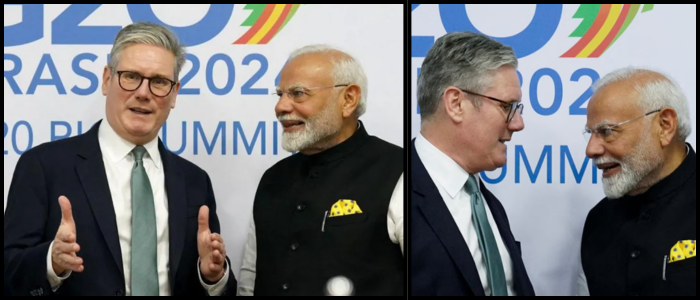Under the deal, India agreed to reduce import duties on British products like whisky, gin and cars. In exchange, the UK will import more Indian goods such as textiles, gemstones and other manufactured products. Indian firms will get access to the UK for electric cars and hybrid vehicles.
As a part of his short visit, PM Modi will hold discussions with UK Prime Minister Sir Keir Starmer and will have an audience with King Charles. This is the fourth time Modi is visiting the UK since he took over in 2014.
Both Countries Poised to Benefit Economically
The UK government has calculated the deal will boost the British economy by an estimated £4.8bn a year. The deal was expected to boost bilateral trade by £25.5 billion annually by 2040, it said in projections. In 2023, there was £42.6 billion of trade between India and the UK.
When the deal was approved by India's cabinet earlier this week, it still faces being voted on by the UK parliament, which could take as long as a year before it is fully implemented.
Modi, in a post on social media platform X, described the deal as a "historic milestone" that was "ambitious and mutually beneficial." It would also boost trade, investment, jobs and innovation in both economies, he said.
Prime Minister Starmer mirrored Modi's comments and hailed the deal as a "landmark" moment for the UK. "It will open up new opportunities for businesses, create thousands of British jobs and drive economic growth.
Talks Also Address Recent Tragedy
The two leaders are likely to discuss last month's Air India crash, along with trade talks. The crash of the London-bound flight in Ahmedabad, Gujarat, killed 260 persons. The FTA would be a new phase in India-UK relations to stand with each other in terms of economy and take a forward step in global trade.
World

India, UK Sign Landmark Free Trade Agreement

Indian Prime Minister Narendra Modi has arrived in the UK to formally sign a long-awaited free trade deal designed to bolster economic links between the two nations. The deal comes after nearly three years of negotiations, and proponents say it is likely to slash tariffs and block other barriers to market access for Japan and the United States.















